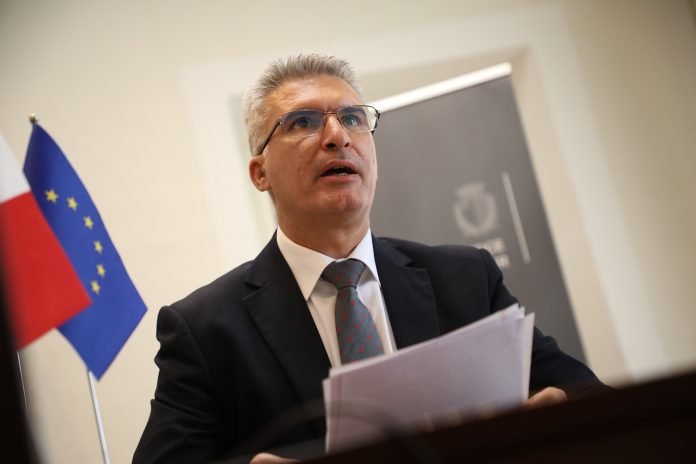“When it comes to artificial intelligence and emerging technologies, seeing that machines might be taking jobs which were previously occupied by people; we must come up with solutions that protect these people. The introduction of a ‘universal basic income’ has been dubbed as a potential solution to such a problem. Is it the right solution? Perhaps, and perhaps not. That is why such a concept must continue being studied”, said Minister Abela.
The message in favour of the UN’s Sustainable Development Goals towards both decent work and economic growth when tackling a digital economy was reiterated by the Minister within the Office of the Prime Minister responsible for sustainable development and conditions of employment. The minister was addressing a Commonwealth virtual conference on the advancement towards the future with emerging technologies and artificial intelligence.
In his intervention Minister Abela emphasised that when it comes to the use of technology in general it must be recognised that there is a need for the right to disconnect; whereby workers are allowed to stop receiving work-related communication in their time of leisure be it if they work remotely or if they work from their normal place of work.
He analysed how the recent months have been eye-opening when it comes to the use of technology and AI, as a result of the pandemic. In this regard, he emphasised that for the 54 countries, who like Malta are members of the Commonwealth this should come as an opportunity. An opportunity which gives countries the chance to make sure that the 2.4 billion people living within our countries; meaning a third of the global population, work closer together in a world which grows more globalised by the day, according to Minister Abela.
“When coupled with the fact that 60% of Commonwealth citizens are aged 29 years or less, this should enhearten us in our quest to make sure that we assist those amongst us who need assistance, as well as eliminating inequality. And what better way to do this than by advancing towards the future with Emerging Technologies and AI?”, argued Minister Abela.
He recounted that Malta has embarked on an ambitious project to spearhead and lead discussions and implementation of several new and emerging technologies. Achievements include the introduction of Malta’s National AI strategy setting out a long-term vision aimed at transforming Malta into a leading economy in the field of AI by 2030. He recalled that several AI projects emanated from such strategy and are attributed to different sectors such as: health, education, transport, and tourism among others.
He informed the Commonwealth members about ongoing discussions including topics such as the access to finance, consolidating key sectors, addressing talent and skills shortages, initiatives, and assisting start-ups among others. Minister Carmelo Abela highlighted the challenges int the adoption of emerging technologies and AI, requiring effective and fast policy interventions. “Such policy interventions need to be designed to ensure that society is prepared for the developments that will be taking place. Education will play a critical role, lifelong learning, upskilling and reskilling of the workforce will be crucial, to fully benefit from the new technological advancements to sustain a digital economy”, concluded Minister Abela.
Photo (MSD)










